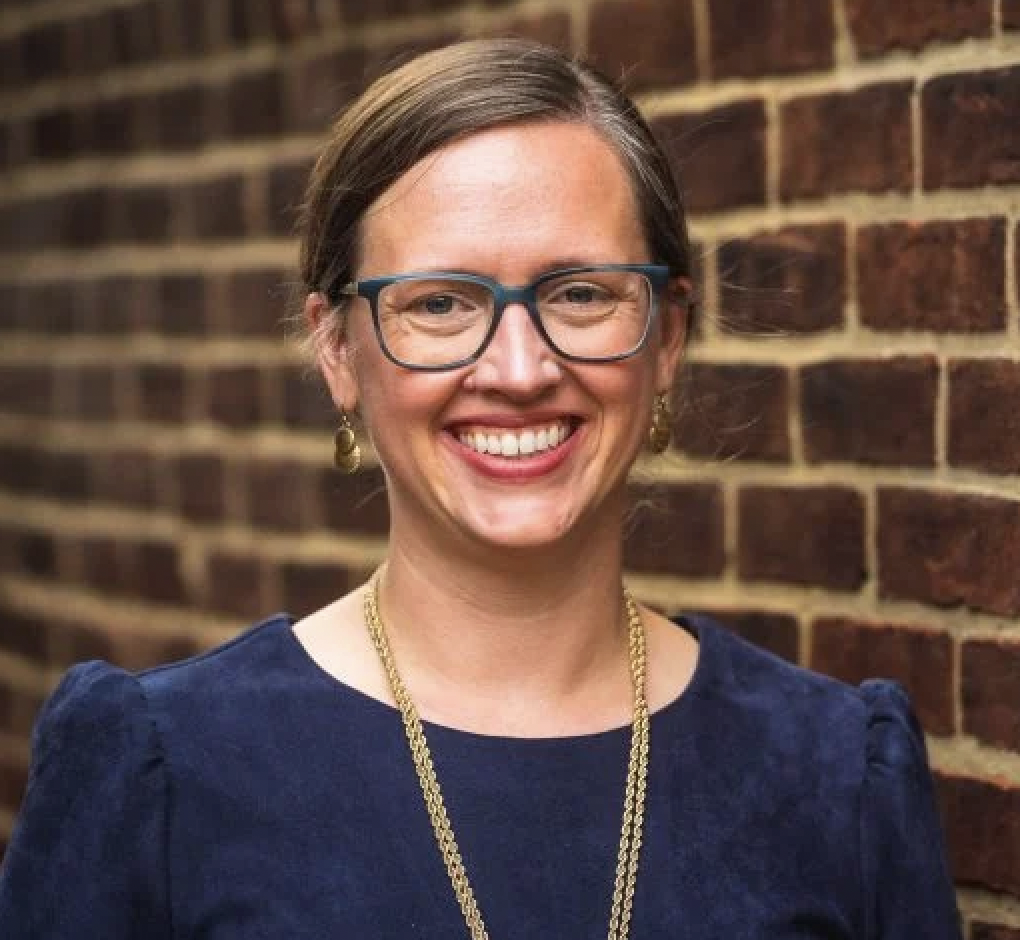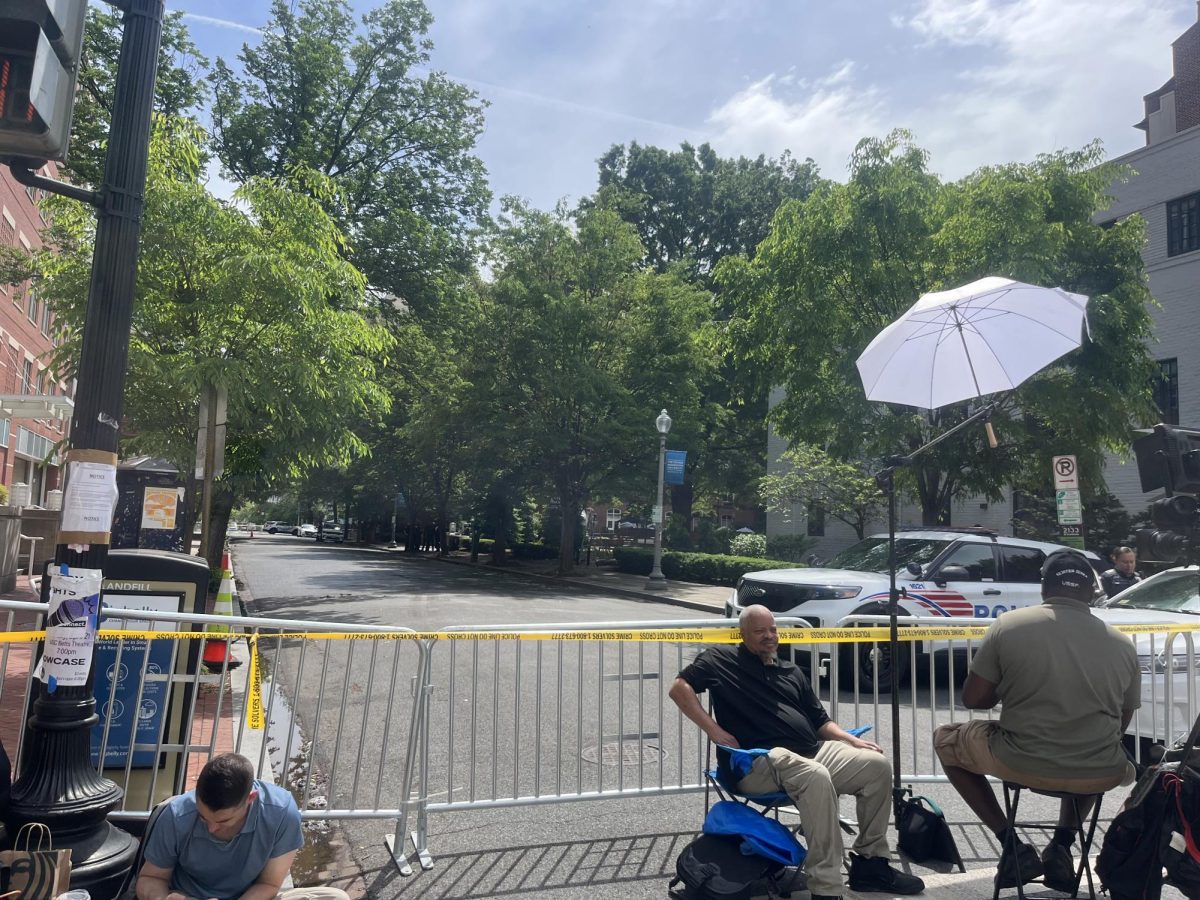A sixth-year Ph.D. student at Georgetown received the 2023-24 Charlotte W. Newcombe Fellowship, the largest and most prestigious award for Ph.D. candidates in the humanities and social sciences addressing problems of ethics and religion, to fund the final stages of her dissertation research and writing.
The Newcombe Fellowship is awarded annually to late-stage Ph.D. students in the humanities and social sciences whose research follows religious and ethical commitments and ideals. One of this year’s recipients, Erica Lally, will receive a $31,000 stipend to complete the final stages of her dissertation.
Lally’s dissertation focused on a World War I-era volunteer surveillance organization called the American Protective League (APL), which had 250,000 members and worked under the direction of the Department of Justice. The volunteers, American citizens, monitored their neighbors, rounded up suspected draft dodgers and policed community morality.
Lally said the community surveillance during this period of American history fascinated her.
“When I found out that tens of thousands of Americans, throughout the country, were reporting on (and in some cases rounding up) their neighbors, I had to learn more,” Lally wrote to The Hoya.

Lally said one of the goals of her research was to establish how the fear-filled atmosphere of the time fueled the APL’s decisions.
“In the name of national security, these volunteers abused their power, surveilling and harassing anyone whom they perceived as dangerous to the existing social order: often immigrants, people of color, workers, and women. It is easy to sit in judgment of the League’s actions a century later. However, one goal of my work is to convey how easily these abuses occurred during a time of emergency,” Lally wrote.
Professor Bryan McCann, the chair of the department of history, said Lally’s research is particularly relevant to today.
“Erica Lally is an outstanding scholar and teacher. Her research on citizen surveillance during World War I—everyday Americans reporting their friends and neighbors for perceived violations—raises important questions about expectations of free speech and privacy,” McCann wrote to The Hoya. “These questions remain acutely relevant over a century later. We are proud to have Erica as a member of our department.”
Lally said she applied for the Newcombe Fellowship because of its focus on religion and ethics.
“Since my research deals with ethical decision-making during wartime, I thought it would be a great fit for the fellowship. The fellowship funds a full year of writing. This time and space is so crucial for telling the stories of those whom the League targeted,” Lally wrote.
“Hearing their voices – voices that were marginalized in their lifetimes and continue to be silenced in the archives – helps us better grasp how this group’s actions shaped individual lives,” Lally added.
Professor Michael Kazin of the department of history, Lally’s academic advisor, said Lally’s dissertation will be influential in studies of U.S. national security during World War I.
“Erica is one of the best researchers I know – graduate student or professor,” Kazin wrote to The Hoya. “Her dissertation, when she completes it, will, I think, be regarded as one of the best studies ever written about the US homefront during World War I and about the development of the national security state as well. Many people don’t realize to what extent that state got established during the years the APL was active.”
Lally said she wanted to inspire a sense of continuity and accountability through her work.
“As I’m writing about these complex ethical issues, I keep in mind that the people I’m writing about were imperfect just like you and me, who made choices that have consequences we continue to struggle with today,” Lally wrote.
“I often wonder how future historians will write about our present moment and my own actions,” Lally added. “I hope to imbue others with this sense of continuity and accountability, that we all might choose to act justly and with grace in each of the many choices we make every day.”




















